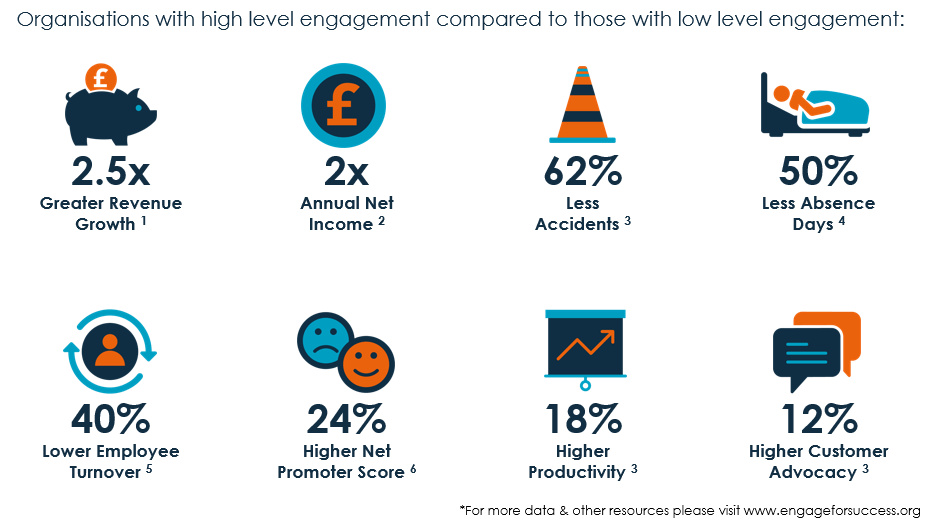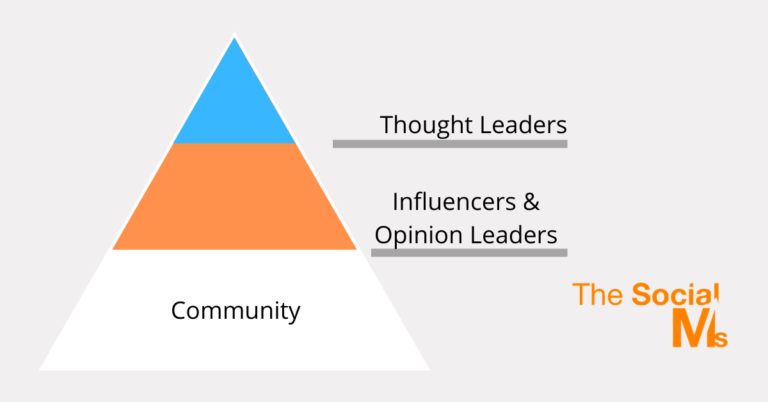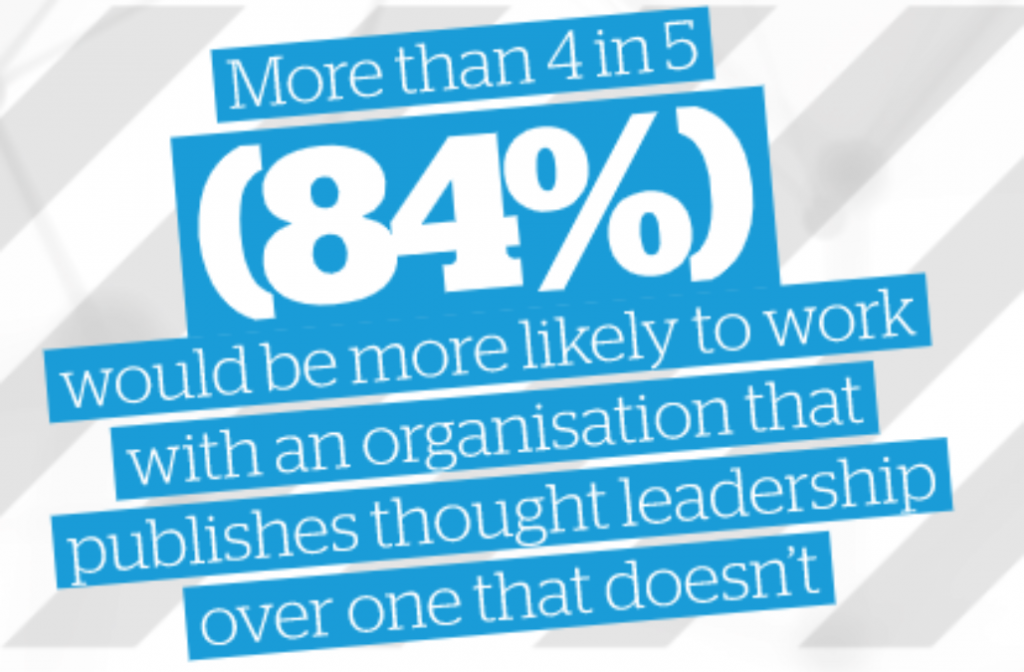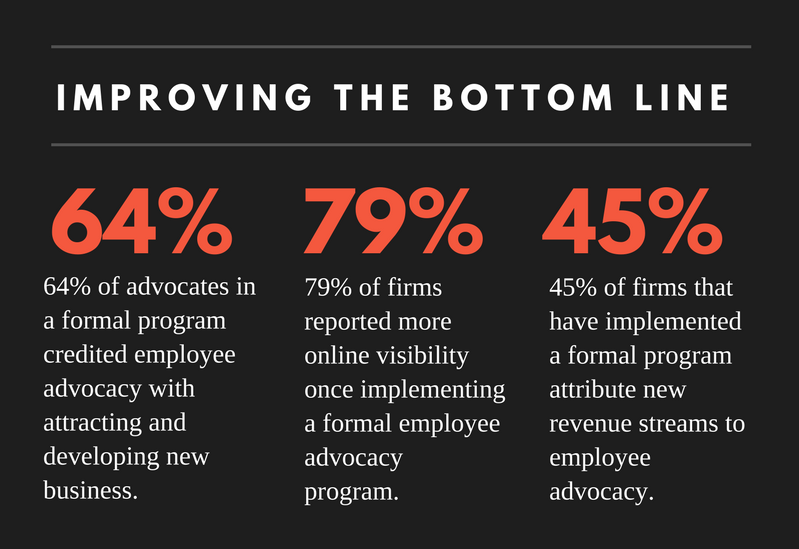In this guide, we’re exploring some of the amazing employee advocacy benefits and how an employee advocacy program can take your business to the next level!
People trust people much more than entities. Positive reviews, word-of-mouth recommendations from peers, friends, and family generate much higher levels of trust than marketing messages from a faceless company or brand.
The problem is, how do you achieve this? How do you create an organic, authentic online presence?
To build a humanized, personal, and trusted online presence with exponential reach and influence, the answer is a good employee advocacy program that is planned, strategic, controlled, and measurable.
Let’s dive right in and see how an employee advocacy program can help your business grow and succeed in 2024!
In simple terms, employee advocacy is the promotion of a company by the individuals who work for it.
It can be as simple as a personal post thanking the company for their lunch, sharing excitement for an upcoming training program, or sharing a personal achievement in their career.
It can also be sharing the company’s latest blog or congratulating the company for a milestone or award achieved.
This kind of organic promotion happens all the time, especially when employees are actively engaged and part of a positive corporate culture.
When employees who are proud of their work, proud of their company, and feel valued within it, they will naturally share that outlook with their friends, family, colleagues, and professional networks.
In companies that do not have a strong corporate culture, an employee advocacy program can bring employees together and give them something to participate in that breeds friendly competition and boosts morale.
It will also give the company valuable insight into their corporate culture and highlight ways to improve it, which not only boosts productivity and positivity for existing employees but also attracts top talent when recruiting new hires.
A formalized employee advocacy program is all about equipping your employees with the tools and content to use their social media presence to increase the company’s brand visibility and position the brand in a positive light.
An effective employee advocacy program provides employees with:
This might seem like a lot to put together and coordinate. Luckily, there are dedicated employee advocacy platforms that will take care of all of the above and make it a breeze to curate content, provide it to employees and track the progress and efficacy of the program!
That said, there is a lot involved in making the most of an employee advocacy program… But… The benefits are huge and absolutely worth it!
Social media has become a primary source of information for people researching a brand or business.
Visibility on social media is a key aspect of any marketing campaign and using your employees’ social media presence will exponentially extend your brand’s organic reach.
An improved presence online, with a wide variety of posts and perspectives, on multiple channels, is an expensive and time-consuming objective to achieve through paid marketing alone.
But as the saying goes “many hands make light work”. Using your employees’ existing social networks to spread the word about your brand is a great way to spread the load. It costs very little compared to paid advertising and achieves much more, much quicker.
People trust information shared by individuals much more than messages shared directly by a brand.
They also trust their known peers more than a faceless, nameless brand. It is word-of-mouth advertising in the most modern sense and a valuable tool for reputation building and management.
In terms of a social media presence, reach and brand awareness an employee advocacy program will:

organic reach is one of the most important aspects of social media marketing. Each employee has a network of diverse audiences that a brand’s corporate profiles do not reach.
According to LinkedIn, on average employees have social networks that are 10 times larger than their company’s network.
This means that every employee post has the potential to reach 10 times the number of people the same post shared by your company does.
The scale of organic reach from employee advocate posts elevates brand awareness and recognition far beyond what can be achieved by the company’s social profiles alone.
The more times someone sees your brand, shared from a trusted peer, the more recognizable your brand is and it will be something they think of immediately when needed.
According to Social Media Today, posts by employees achieve 8 times the engagement of content shared directly by a brand.
People innately trust information shared by peers and feel it is more relevant to them as individuals, which adds yet another layer of value to employee advocacy.
Clearly, the social media marketing value of employee advocacy is huge.
You don’t even need all your employees to be advocating for you – According to Katie Levinson, writing for LinkedIn, when only 3% of employees share company-relevant content they can drive a 32% increase in engagement and get twice the number of CTRs compared to company shares of the same content.
Increased reach and engagement are not the only employee advocacy benefits. When brand content is shared by peers, the people reached by that content see it connected to an authentic human being, rather than a nameless and faceless brand.
Employees who deal directly with customers are immediate representatives of your brand.
That human connection is an essential component of how customers feel about your brand and if they choose to purchase your product or service. Personalization, connection, and relationships are at the heart of customer loyalty and retention.
As more and more people use social media as search engines to find information about the companies they’re considering doing business with, the human element of social media has become essential too.
When employees share company content, they’re connecting themselves to the content and putting a face and authentic human sentiment to the company content.
According to PostBeyond, a HubSpot study found that 75% don’t trust advertisements but 90% trust recommendations made by friends or family, and 70% trust recommendations from consumer reviews.
This kind of implicit trust extends to employee advocacy posts too, as they from real people who are known to the audience.
According to HubSpot, people are 71% more likely to make a purchase based on a social media referral.
One of the less obvious but very important employee advocacy benefits is how participating in the program improves employee-company engagement.
When employees are actively interacting with the company as a whole, rather than just within their specific role, it creates a new level of awareness and engagement.
Employees that actively participate in the bigger picture objectives of their organization feel more connected to their company.
Aside from a boost in morale and a more connected and interactive workforce, a report by Altimeter Group found that employee advocacy forms an important part of investing in ‘relationship economics’.
The report states that “socially engaged employees are more optimistic, inspired, connected, and tenured”. They also stated that socially engaged employees were:
However, employee engagement is more than difficult to quantify ‘soft benefits’, like positive sentiment and inter-departmental interaction.
A meta-analysis conducted by Gallup found that groups with a high level of employee engagement had almost twice the likelihood of success in terms of composite scores based on financial, customer, retention, safety, quality, shrinkage, and absenteeism metrics.
The report found that, when compared to units with low employee engagement, units with highly engaged employees have:
As you can see, the hard benefits of improving your employee engagement will have a huge impact on your business, at every level.

Employee advocacy benefits companies and brands hugely. However, it also benefits the employees themselves.
Aside from the benefits of being more engaged and successful in their chosen professions, they’re also able to develop their personal brands and establish themselves as thought leaders and industry experts.
Providing employees with a range of content that is highly relevant to their industry and that reflects well on the organization they work for allows them to share that information from their personal accounts.
They can frame that content within their own authentic style and voice, leverage it to make themselves look good by being well informed, knowledgeable and up to date in their field.
As they’re not solely sharing company-curated content, they can use it to augment their own efforts on social media and create conversations that they’re passionate about.
It can bolster their unique web presence and add a layer of authority to their channels.
A company with highly regarded employees is more attractive to business prospects, especially B2B business decision-makers, and can open up partnership opportunities that would otherwise not be available to the company.
In addition, an Edelman B2B Thought Leadership Study found that B2B decision-makers use thought leadership to vet a company’s capabilities, and 59% of them agree that an organization’s thought leadership is a more trustworthy source for assessing a company’s capabilities and competencies than its marketing material.

Harboring visible, engaged, and passionate thought leaders in your organization is a great way to attract customers and partners.
However, it also attracts top talent for your recruitment. Highly regarded individuals reflect well on their teams, and their organizations as a whole and this is something people take into consideration when looking to make the switch to a new company.
Employee advocacy as a whole is great for recruiting. Finding great talent requires a great reputation and employee advocacy is all about building that reputation.
In addition, high caliber talent isn’t always looking for a new position and they may not see your job postings at all.
Having a highly visible social media presence means they’re more likely to see your openings without having to look for them. They’re also seeing them in the context of an authentic campaign selling how great your company is, from an employee’s perspective.
No one can sell how great it is to work for you like your own employees, armed with the right content and the objective of making their own jobs and careers look as good as possible!

A good employee advocacy program is one that is planned, strategic, and somewhat controlled. It is based on clear objectives and the content provided to employees is aligned with those objectives. Results are visible and measurable.
Check out this video by Oktopost on YouTube about which metrics and KPIs you can use to measure your employee advocacy program:
This may sound overwhelming if marketing is not your area of expertise. However, there are many great options to support you on this journey!
Your in-house marketing department or external agency is likely to already have a social media marketing strategy in place, which can be adjusted to include employee advocacy.
If you don’t have this in place, there are loads of great professionals and agencies who can get you up and running with your program and set you up to continue with it alone or with them long term.
There are also dedicated employee advocacy platforms that provide you with the software to seamlessly run your program. They provide a platform for content to be shared with employees, make it easy for employees to participate and provide tracking and reporting so you can see the results of your program.
Many platforms also provide a wealth of resources, training, and guides to help you make the most of your program and the platform.
You can create social media guidelines and policies for employees to ensure that social media is used in a way that only benefits the brand and you can control the content provided to them.
This includes content and recommended copy and captions. These measures protect your company and brand image, without curtailing the benefits of the program.
As you can see, there are massive benefits to using an employee advocacy program, which may not be as direct and easily quantifiable as we would like.
There is plenty of research that shows the value of an employee advocacy program for marketing, reputation building and brand awareness, as well as increased employee engagement and the benefits for HR and recruitment.
All of these will help you succeed and make your business more profitable, in various ways. However, there are also some very direct benefits to an employee advocacy program, such as increased sales.

In 2024, all sales lean heavily on your online presence, especially on social media.
Social media is increasingly functioning as a platform for people to do their independent research on products and services long before they speak to or interact with anyone who works for you.
Your presence and visibility on social media are huge factors in purchasing decisions.
Even B2B buyers use social media to guide their purchasing decisions when they’re looking for a trusted solution to their problem.
Social selling is how sales teams use social media to meet their prospective clients, interact with them and develop relationships that convert.
Salespeople within an employee advocacy program have a huge bank of great content to share and the tools to make reaching and communicating with prospective clients easy and effective.
According to LinkedIn, leads from employee advocacy convert 7 times more frequently than other types and sales people who share content are 45% more likely to achieve or exceed their sales quotas.
An employee advocacy program that extends beyond customer-facing teams will further augment the sales team’s efforts by creating a larger presence on social media, building the brand’s reputation and making the brand more recognizable and familiar to prospective customers.
In conclusion, there are a great deal of employee advocacy benefits for those who implement an effective program. These include improving your brand’s online presence, greater reach and engagement on social media, creating a stellar brand reputation, increasing employee engagement and productivity, recruitment and improved sales, conversions and revenues.
The best part is that these benefits can be realized by any company, in any industry. Regardless of size or sector, an employee advocacy program will benefit your company in many ways. It is also cheaper and more effective than traditional advertising. What’s not to love?!
In simple terms, employee advocacy is the promotion of a company by the individuals who work for it. Check out the full article for how employee advocacy works and why it is such a successful marketing method.
The benefits of employee advocacy include:
1. Larger Brand Presence and Social Media Reach
2. Greater Trust, Authenticity and a Humanized Brand
3. Improved Employee-Company Engagement
4. Empowering Employees as Thought Leaders and Industry Experts
5: Recruitment and Attracting Top Talent
6. Strategic and Controlled, with Measurable Results
7. Increased Revenue
Check out the full article for more detail on the benefits of employee advocacy.
An employee advocacy program is all about equipping your employees with the tools and content to use their social media presence to increase the company’s brand visibility and position the brand in a positive light. Check out the full article to learn more about employee advocacy.
Edelman: B2B Thought Leadership Impact Study
EveryoneSocial: The Benefits of Social Selling
Gaggle AMP: Employee Advocacy: What’s in it For the Employees?
HubSpot: 71% More Likely to Purchase Based on Social Media Referrals [Infographic]
LinkedIn: Making the Case for Employee Advocacy: A Pocket Guide
Marketing Profs: Why Social Media Marketers and Brand Managers Should Care About Employee Advocacy